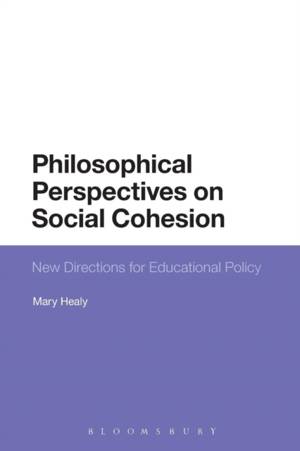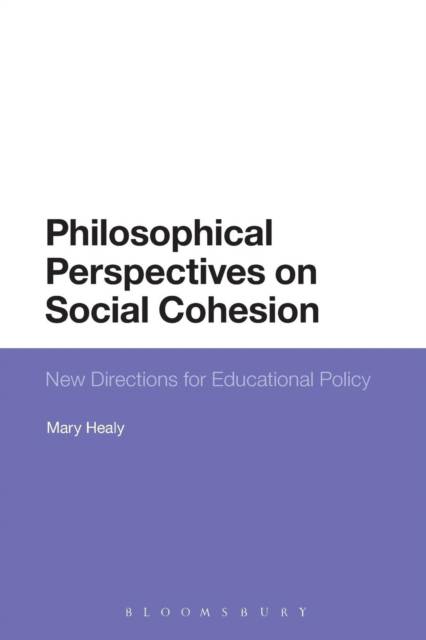
Bedankt voor het vertrouwen het afgelopen jaar! Om jou te bedanken bieden we GRATIS verzending (in België) aan op alles gedurende de hele maand januari.
- Afhalen na 1 uur in een winkel met voorraad
- In januari gratis thuislevering in België
- Ruim aanbod met 7 miljoen producten
Bedankt voor het vertrouwen het afgelopen jaar! Om jou te bedanken bieden we GRATIS verzending (in België) aan op alles gedurende de hele maand januari.
- Afhalen na 1 uur in een winkel met voorraad
- In januari gratis thuislevering in België
- Ruim aanbod met 7 miljoen producten
Zoeken
Philosophical Perspectives on Social Cohesion
New Directions for Educational Policy
Mary Healy
Paperback | Engels
€ 88,45
+ 176 punten
Uitvoering
Omschrijving
What would the civic relationship between citizens in a socially cohesive society look like? What models might we use to educate young people to support developing these bonds? Do these different models have different implications for how we structure the bonds that support a civic relationship?
Philosophical Perspectives on Social Cohesion challenges the basis of how we characterize civic bonds and how we best organize schools to encourage and develop them. Mary Healy argues that metaphors and social imaginaries often give a framework for considering our interrelatedness. She re-examines the metaphor of fraternity, used as a precursor to elements of the 'Big Society', arguing that such attempts to align fraternity with liberty are mistaken and that equality plays a vital role. At a time of increasing diversity of school provision, this pertinent book indicates the connection between how we organize school structures and the models of citizenship we value.
Philosophical Perspectives on Social Cohesion challenges the basis of how we characterize civic bonds and how we best organize schools to encourage and develop them. Mary Healy argues that metaphors and social imaginaries often give a framework for considering our interrelatedness. She re-examines the metaphor of fraternity, used as a precursor to elements of the 'Big Society', arguing that such attempts to align fraternity with liberty are mistaken and that equality plays a vital role. At a time of increasing diversity of school provision, this pertinent book indicates the connection between how we organize school structures and the models of citizenship we value.
Specificaties
Betrokkenen
- Auteur(s):
- Uitgeverij:
Inhoud
- Aantal bladzijden:
- 184
- Taal:
- Engels
Eigenschappen
- Productcode (EAN):
- 9781474234641
- Verschijningsdatum:
- 23/04/2015
- Uitvoering:
- Paperback
- Formaat:
- Trade paperback (VS)
- Afmetingen:
- 156 mm x 234 mm
- Gewicht:
- 258 g

Alleen bij Standaard Boekhandel
+ 176 punten op je klantenkaart van Standaard Boekhandel
Beoordelingen
We publiceren alleen reviews die voldoen aan de voorwaarden voor reviews. Bekijk onze voorwaarden voor reviews.









